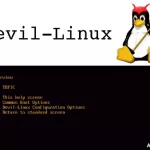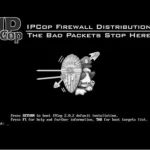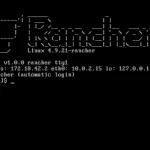Last Updated on: 13th December 2024, 11:57 am
Web site: mklinux.org
Origin: USA
Category: Desktop
Desktop environment: CLI
Architecture: PowerPC
Based on: Independent
Wikipedia: MkLinux
Media: Install
The last version | Released: Pre-R2 | August 5, 2002
MkLinux – an Open Source operating system which consists of an implementation of the Linux operating system hosted on the Mach microkernel. We estimate that there are somewhere between 50,000 and 100,000 MkLinux users. A significant number of the installed MkLinux systems are being used in mission-critical applications.
During the early years, most MkLinux development occurred either at Apple or at The Open Group Research Institute in Grenoble, France. MkLinux Developer Release 1 (DR1) was released in early 1996.
MkLinux is a project begun by the OSF Research Institute (now Silicomp RI) and Apple Computer to port Linux, a freely distributed UNIX-like operating system, to a variety of Power Macintosh platforms running on top of OSF Research Institute’s implementation of the Mach microkernel.
Later that year, DR2 was released, incorporating numerous bug fixes. The Linux server was updated to the 2.0.x source base shortly thereafter. At about the same time, (December, 1996) PCI machines were supported and DR2.1 was completed and incorporated into Apple’s “Reference Release”. DR2.1 was released a few months later. With the exception of shared library support and support for 603e machines, very little changed until the appearance of the G3 PowerMacs in late 1997. Support for these machines trickled into the source base over the course of a few months, and pre-DR3, as it was then known, was frozen about March of 1998. While Apple’s quality assurance people tested the disk, the world moved on without it. As a result, a substantial number of bug fixes didn’t make it into the DR3 release.
By the time DR3 was released, at least three additional PowerBook models were partially supported (1400, 2400, and G3 series), and numerous major causes of crashes had been eliminated. At this point, a number of developers had made various fixes to PowerBook support, but they weren’t all in the same kernel.
At that point, at the request of Gilbert Coville, I sent out a request for patches and changes. The GENERIC kernels were born. Several developers joined me in setting up a CVS server for sources so that developers from around the world could easily coordinate their development efforts and maintain a single source tree.
Since the DR3 release, MkLinux has made significant advances in multiple Ethernet support, IDE support, floppy support, and overall stability. Literally hundreds of bug fixes and patches have been submitted in the past few months, and MkLinux is in a stronger position than ever to grow and improve for years to come.
Beginning in the summer of 1998, development work on MkLinux transitioned from Apple and OSF to a community-led effort.





